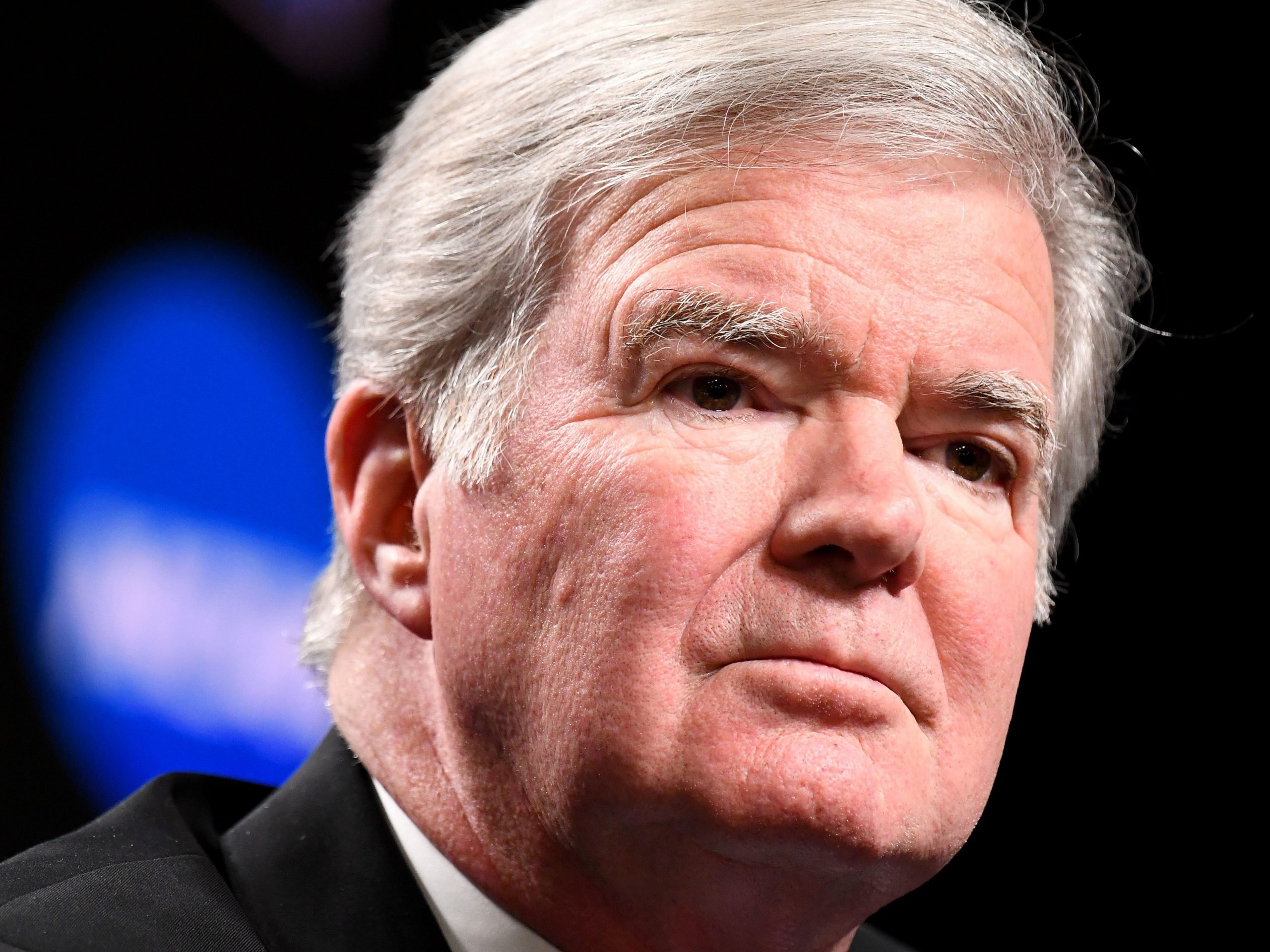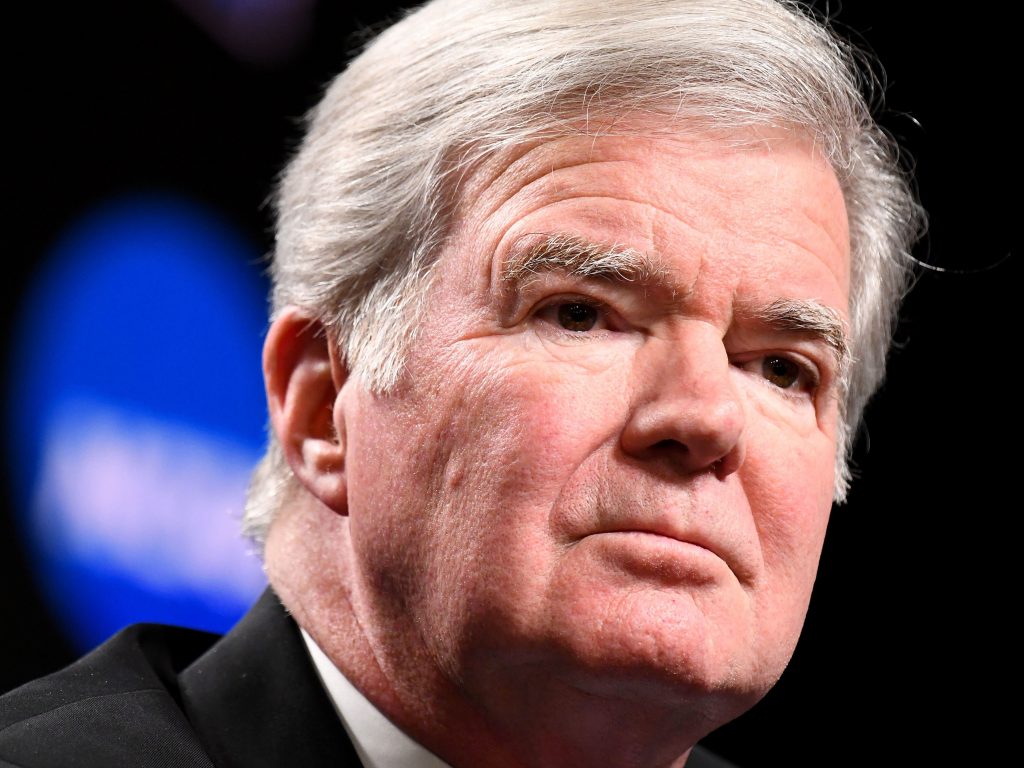
Brett Wilhelm/NCAA Photos via Getty Images
- The Supreme Court ruled that the NCAA violated antitrust laws with previous policies.
- Those policies limited how much college athletes could receive in educational benefits.
- Now, countless athletes could come forward with their own lawsuits against the NCAA.
- Visit Insider's homepage for more stories.
The Supreme Court's ruling in the Alston vs. NCAA case could be just the start of a series of costly legal losses for the governing body of college sports.
In a unanimous 9-0 decision, the court ruled that the NCAA violated antitrust laws by putting a $5,000 limit on what universities can supply in educational resources for college athletes. Now, countless college athletes who suffered hindrances to their education because of those limits could have a case to make against the NCAA.
Michael Burwick, a partner at law firm Greenspoon Marder who focuses his practice on sports law, expects a wave of individual and class action lawsuits to be filed against the NCAA for damages.
"The NCAA continues to rely on the sanctity of higher education, the importance of amateur athletics and so forth," Burwick told Insider. "But the vast majority of those who are watching this area of the law know this is about money, this is about revenue, and it's about the lack of desire on behalf of the NCAA to share that revenue with the athletes that are out there earning the money."
Still, the NCAA could seek protections from cases that could financially cripple it. They would likely have to compromise and make further changes to get those protections.
Declining graduation rates could be evidence in those lawsuits, but antitrust violations are the strongest argument
A recent analysis from the Institute for Diversity and Ethics in Sport found that graduation rates among black college football players had steadily declined to record-low numbers over the past three years.
While multiple factors play into those declines, a lack of educational resources could be cited as legitimate causes in individual or class action lawsuits.
Potential plaintiffs could even go a step further and make a civil rights case against the NCAA for policies that disproportionately affect Black athletes over white athletes, as the data shows it has.
However, Burwick believes those cases would have a more challenging time swaying a jury than cases that simply seek to indict the NCAA for its ongoing antitrust violations.
"It's possible to construct a case talking about the unequal impact that these rules have on Black players versus white players, but I don't think that's the way to go about this," Burwick said. "I think the antitrust route, in terms of bringing legal actions that are silent as far as race go, is the best way to attack this as a business proposition ... but the case doesn't need to be predicated on racial injustice in order for the case to raise issues about racial injustice in the media and elsewhere."
The NCAA can't defend itself alone and will likely need federal power to step in
The NCAA's only defense throughout the Alston vs. NCAA case was based upon upholding the principles of amateurism and protecting the association from an onslaught of lawsuits that could ultimately cripple it financially.
During the case's first hearing, NCAA attorney Seth Waxman said that a ruling against the association would put college sports in "perpetual litigation" due to inevitable future lawsuits from athletes. Chief Justice John Roberts even supported that sentiment, saying there would be a need to protect the NCAA.
Burwick believes that the NCAA wouldn't have any legitimate defense if current and former college athletes came forward with antitrust lawsuits.
The federal government would have to step in to protect the NCAA.
Former NBA and college basketball player Len Elmore, who co-chairs the Knight Commission on Intercollegiate Athletics - a panel dedicated to reform in collegiate athletics emphasizing athletes' rights, believes that Congress will take action to grant the NCAA immunity from an onslaught of lawsuits.
"Congress will have to act with a conditional antitrust exemption allowing them to cap spending conditioned upon using the savings for education, health, safety, and athletes well being," Elmore said. "Failure to do so would strip the exemption, and the NCAA would die a death by 1000 litigation cuts."
College athletes could also force reform by unionizing
Still, even if the NCAA is protected from lawsuits, college athletes could unionize to force changes in revenue sharing.
Burwick believes that unionizing college athletes could ultimately bring a new case to the supreme court that results in more significant reform beyond just educational benefits and ensures that the athletes get fair shares of college sports revenues, just like in professional sports.
"I think there will be cases that will be brought up that are seeking the right t0 collectively bargain," Rawick said. "There's going to be a team by some team, some effort, some group to collectively bargain assemble as a union and then a rejection of that by the NCAA, and ultimately that's the type of case that will end up in the supreme court eventually. And then it's going to be off to the justices at that point to decide how far they're willing to go.
The Alston vs. NCAA ruling has proven that athletes have the leverage to incite change in college sports through the court system, and it surely won't be the last example.
